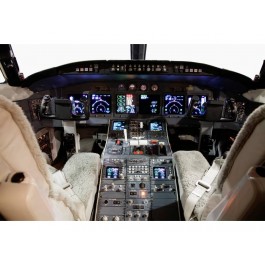|
|
Instrument Proficiency CheckDescription61.57 Recent flight experience: Pilot in command.c) Instrument experience. Except as provided in paragraph (e) of this section, no person may act as pilot in command under IFR or in weather conditions less than the minimums prescribed for VFR, unless within the preceding 6 calendar months, that person has: 1. For the purpose of obtaining instrument experience in an aircraft (other than a glider), performed and logged under actual or simulated instrument conditions, either in flight in the appropriate category of aircraft for the instrument privileges sought or in a flight simulator or flight training device that is representative of the aircraft category for the instrument privileges sought -- i. At least six instrument approaches; ii. Holding procedures; and iii. Intercepting and tracking courses through the use of navigation systems. 2. For the purpose of obtaining instrument experience in a glider, performed and logged under actual or simulated instrument conditions -- i. At least 3 hours of instrument time in flight, of which 1 1/2 hours may be acquired in an airplane or a glider if no passengers are to be carried; or ii. 3 hours of instrument time in flight in a glider if a passenger is to be carried. d) Instrument proficiency check. Except as provided in paragraph (e) of this section, a person who does not meet the instrument experience requirements of paragraph (c) of this section within the prescribed time, or within 6 calendar months after the prescribed time, may not serve as pilot in command under IFR or in weather conditions less than the minimums prescribed for VFR until that person passes an instrument proficiency check consisting of a representative number of tasks required by the instrument rating practical test. 1. The instrument proficiency check must be -- i. In an aircraft that is appropriate to the aircraft category; ii. For other than a glider, in a flight simulator or flight training device that is representative of the aircraft category; or ii. For a glider, in a single-engine airplane or a glider. 2. The instrument proficiency check must be given by -- i. An examiner; ii. A person authorized by the U.S. Armed Forces to conduct instrument flight tests, provided the person being tested is a member of the U.S. Armed Forces; iii. A company check pilot who is authorized to conduct instrument flight tests under part 121, 125, or 135 of this chapter, and provided that both the check pilot and the pilot being tested are employees of that operator; iv. An authorized instructor; or v. A person approved by the Administrator to conduct instrument practical tests. IPC Task from the June 2016 Instrument Rating ACS. Holding procedures Recovery from unusual attitudes Intercepting and tracking navigational systems and DME arcs Non precision approach Precision approach Missed approach Circling approach Landing from an instrument approach One engine inop during straight & level and during turns One engine inop instrument approach Approach with loss of primary flight instrument indicators Checking instruments and equipment Tags: IPC, InstrumentPilot, InstrumentRating, InstLP, CFIILP Detailed Information
|









